Strengthening allied health systems for UHC: Key takeaways from 2024 Round-Table Conference
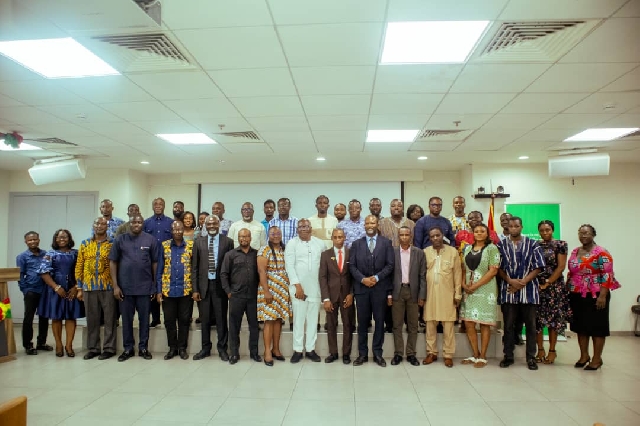 Participants in an group photographn after the UHC confab in Accra
Participants in an group photographn after the UHC confab in Accra
The 2024 Round-Table Conference on Allied Health, held on November 22 in Accra, Ghana, brought together key healthcare professionals, policymakers, and stakeholders to discuss the theme: “Strengthening Allied Health Systems for Universal Health Coverage through Effective Policies.”
The event underscored the vital role of allied health professionals in the country’s healthcare system and called for targeted reforms and policies to address the challenges hindering progress toward achieving universal health coverage (UHC).
Acknowledging the Role of Allied Health Professionals
In his keynote address, Alhaji Hafiz Adam, Chief Director of the Ministry of Health, emphasized the significant contribution of allied health professionals to Ghana's healthcare delivery system.
However, he pointed out that several systemic challenges, including staff quality, capacity building, and the lack of targeted policies, must be addressed to achieve the country's UHC goals.
"The allied health sector plays a crucial role in the healthcare delivery system.
To ensure universal health coverage, we must address challenges related to workforce quality, effective training, and policies that align with the health sector’s broader objectives," Alhaji Adam remarked.
Call for policy alignment and legislative reform
Dr. Ignatius A.N. Awinibuno, Director of Allied Health at the Ministry of Health, reiterated the call for unity and professionalism within the allied health workforce.
He charged practitioners to fully align their efforts with the Health Ministry’s direction to support the President’s vision for universal health coverage.
"Let us work together, with the President and the Health Minister, to ensure that every Ghanaian has access to the health services they need," Dr. Awinibuno stated.
Dr. Shiraz Issahaku, Chairman of the Ghana Federation of Allied Health Professions, also emphasized the need for legislative backing.
He urged the Health Minister to prioritize and fast-track the laying in Parliament and passage of the Legislative Instrument (LI) into law to fully operationalize Act 857, which would clarify the roles of allied health professionals and address existing regulatory bottlenecks.
“We need clear definitions of who our professionals are and a system that recognizes the diversity and scope of practice within the allied health sector,” he added.
Addressing human resource and recruitment challenges
Sofonias Asrat, Health System Advisor for the World Health Organization (WHO) in Ghana, highlighted that Ghana’s allied health sector faces critical human resource challenges, especially in recruitment, retention, and incentives for services in underserved regions. “Ghana must address these issues to strengthen its health systems. Without a skilled and motivated workforce, the goals of universal health coverage will remain unattainable,” Asrat stated.
Dr. James Duah, Deputy Director of the Christian Health Association of Ghana (CHAG), reiterated this point, noting that the allied health profession is composed of over 40,000 personnel who are integral to delivering healthcare across the country. However, the sector faces significant barriers such as financial constraints, limited geographical access, and inconsistent quality of care. "We must align the roles of allied health professionals with national policies, focusing on recruitment, resource allocation, and human resource planning," Duah stressed.
The need for stronger health networks and primary healthcare
Dr. Alberta Biritwum-Nyarko, Director of PPME at the Ghana Health Service, addressed the need to improve primary healthcare in Ghana by strengthening health systems and creating more robust networks of practice. "A cohesive network of primary healthcare providers, including private health facilities, labs, diagnostics, and community pharmacies, is essential for achieving universal health coverage," she said.
Dr. Biritwum-Nyarko also pointed out the weaknesses in the current healthcare system, particularly the ineffective referral system and poor administrative structures.
She called for greater collaboration between the public and private sectors to integrate services and eliminate fragmentation. "Allied health professionals are key to making this happen.
They are integral to the network of practice that will drive universal health coverage," she affirmed.
The evolution and regulation of Allied Health Professions
In a detailed presentation, Dr. Prince Sodeke Amuzu, Chairman of the Practice Committee for the Allied Health Professions Council (AHPC), discussed the evolving landscape of allied health professions in Ghana. With 26 recognized professions and new ones emerging, Dr. Amuzu stressed the importance of strengthening regulatory frameworks to keep pace with these changes.
"As the allied health sector grows, so must the systems that regulate it.
This will ensure that the sector remains effective, accountable, and responsive to the needs of the population," he stated.
Rural-urban disparities and financial accessibility
Mr Alexander Akwasi Acquah, Deputy Minister for Health, addressed the stark disparities in healthcare access between urban and rural areas.
"Approximately 60% of allied health professionals are concentrated in urban centres, leaving rural communities underserved.
This imbalance is a critical issue that needs urgent attention," Acquah revealed. He added that the Ministry of Health is working closely with the Ministry of Finance to secure the necessary financial clearance to address the emerging challenges in the allied health sector.
Mr Acquah called for continued collaboration between the Ministry, allied health professionals, and academic institutions to generate actionable outcomes that would improve service delivery across the country.
"We are committed to working with allied health professionals to address the challenges in the sector and improve healthcare access for all Ghanaians," he concluded.
Looking ahead
As the conference concluded, one message was clear: the allied health sector in Ghana plays an indispensable role in achieving universal health coverage.
However, to unlock its full potential, significant investment in human resources, policy reform, and improved healthcare infrastructure is essential.
The 2024 Round-Table Conference highlighted the urgency of addressing these issues, while also offering a roadmap for the future—one where allied health professionals are empowered, well-resourced, and integrated into a cohesive healthcare system that leaves no one behind.
Source: Classfmonline.com/Cecil Mensah
Trending News
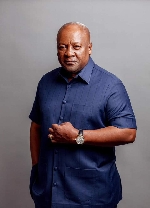
President Mahama has debut Cabinet meeting, expresses confidence team’s ability to reset the country
11:38
Mahama calls on Council of State to ensure integrity and uphold national interest
11:13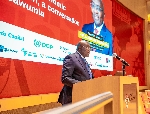
History will remember you for your transformational policies – NPP USA to Bawumia
13:50
National Education Forum Committee to submit final report by March
10:04
Osu Kinkawe Dzaase disowns Bernard Botchway as Osu Mantse
13:23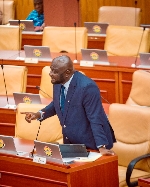
World Social Justice Day: Mpraeso MP calls for an end to politically-motivated dismissals
18:23
Foreign Ministry establishes student desks to support Ghanaian studying abroad
18:26
GA/R: Water scavenging hits Ningo -Prampram
09:43
Minority files stay of execution in Akwatia MP's case
15:53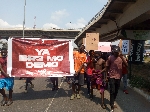
NUGS march in protest of WAEC's results cancellation
09:33




